Hi, it’s Katrina with you, and welcome back to The Eco-Friendly Life. Today, we’re diving into our first conversation about ethical consumerism by discussing some eco-friendly shopping tips for a healthy planet. Whether it’s embracing local and seasonal delights, buying in bulk, or choosing reusable items, we’ll explore how these practices can make a significant impact on our environment.
In this article, we’ll discuss the joys of local and seasonal eating, the economic and environmental perks of bulk buying, and the benefits of shifting to reusable solutions. We’ll also highlight the importance of choosing sustainability first, from apparel to household goods, and the power of mindfulness in consumption. Join me as we uncover how these shopping habits can lead to a greener, healthier planet for all.
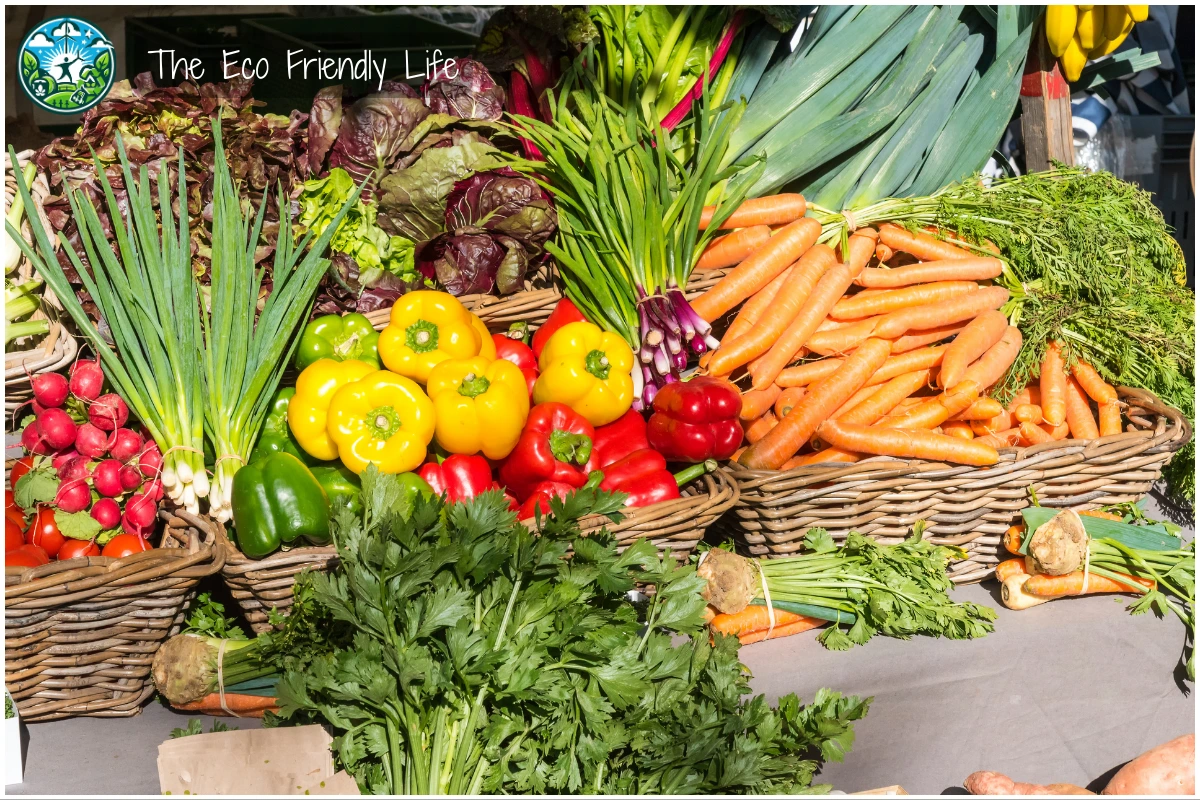
Embracing Local and Seasonal Delights for Eco-Conscious Eating
Have you ever savored the taste of an apple straight from the orchard or enjoyed tomatoes that traveled only a short distance to your plate? Embracing local and seasonal produce isn’t just about the flavor—it’s a commitment to creating a greener planet.
Cut your carbon footprint: By shopping for foods produced close to home, you can significantly slash the carbon emissions from transporting goods across long distances. Imagine the impact you make by choosing a locally-grown cucumber over one shipped from halfway across the globe—each choice you make helps cut down our collective carbon footprint.
Choose eco-friendly farms: Local markets often offer goods farmed in more earth-friendly ways, using fewer pesticides and fertilizers compared to large-scale commercial farms. So, the strawberries from your local farmer aren’t just fresher; they’re also a win for your health and the planet’s well-being.
Support the local economy: Investing your grocery dollars locally means supporting the livelihood of your neighbors and boosting the local economy. This communal support strengthens the foundation for sustainable agricultural practices to flourish.
The ripple effects of choosing local and seasonal fare go beyond taste and nutrition—they play a crucial role in revitalizing the local ecosystem and fostering a sustainable food economy, which is a vital element in developing sustainable shopping habits.
The Economic and Environmental Perks of Bulk Buying
Buying products in bulk isn’t just a smart money-saving strategy; it’s also a powerful way to contribute to environmental conservation. By purchasing in large quantities, you’re helping to reduce the demand for excessive packaging materials that often end up in landfills.
Reduce packaging waste: When you embrace bulk buying, the most immediate benefit is a significant reduction in packaging waste. Bulk items typically use less packaging than individually wrapped goods, meaning fewer resources are consumed in creating these materials and less waste is generated. By minimizing packaging, you directly lessen your ecological footprint.
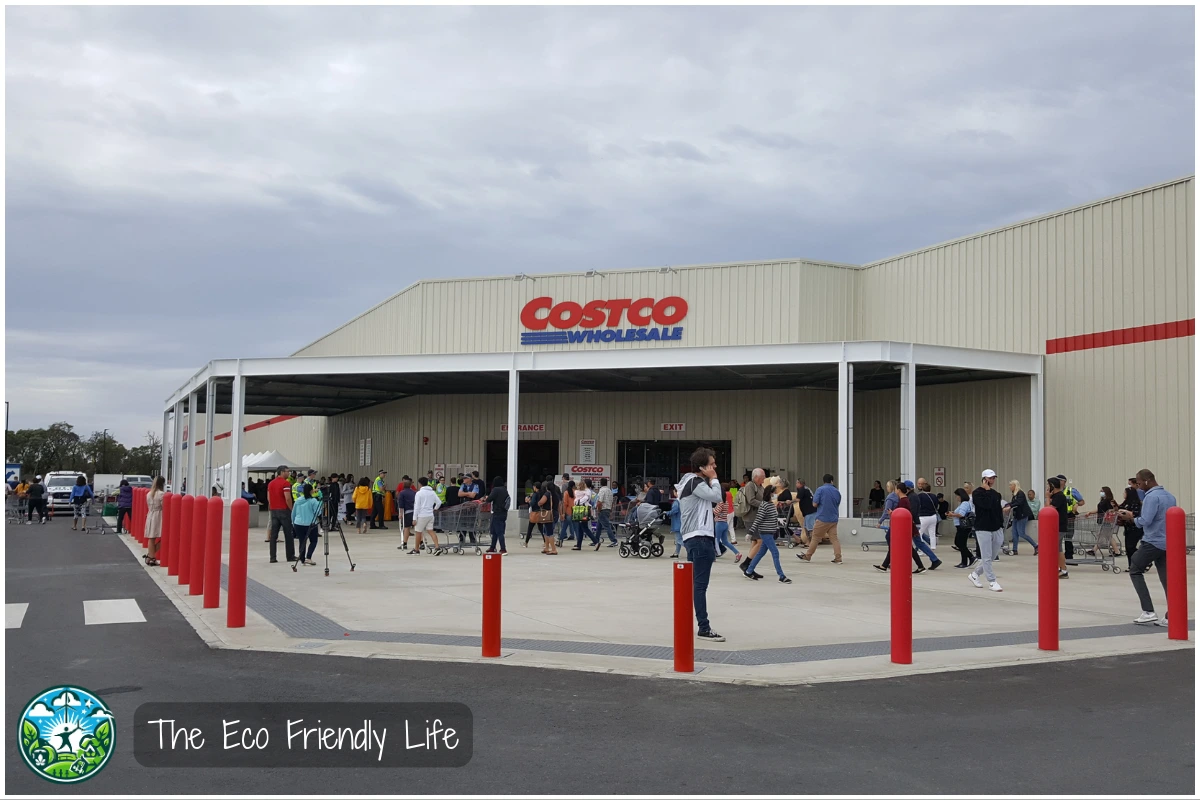
Save money, help the earth: Not only do you reduce waste, but buying in bulk is usually more cost-effective. Bulk items are often priced lower due to reduced packaging and marketing costs, so you’re making a choice that benefits both the environment and your wallet.
Help lower carbon emissions: Additionally, bulk buying reduces carbon emissions linked to the production and transportation of packaging. Less packaging means fewer materials to produce, transport, and dispose of, translating into a significant decrease in carbon emissions. This practice underscores the need for industries to reevaluate and restructure packaging norms for a better environment.
Use reusable containers: To maximize the benefits of bulk shopping, consider using reusable containers and bags. By equipping yourself with durable, eco-friendly carriers, you extend your commitment to sustainability.
Reusable Solutions: A Gateway to Waste Reduction
Cut out single-use plastics: Have you noticed the staggering amount of waste from single-use plastics we encounter daily? From grocery bags to food packaging, the convenience of ‘use once and discard’ has led to significant pollution challenges. Shifting to reusable items can fundamentally alter this throwaway mentality that harms our planet.
Embrace your reusable options: Picture your morning coffee ritual—what if it didn’t end with tossing a plastic cup? By using your favorite mug that has been with you for countless commutes, you set a powerful example. Expand that mindset to your grocery habits: replace plastic bags with cloth bags, mesh produce bags, and sturdy containers. This simple change isn’t just about reducing plastic waste; it’s about embracing responsibility and mindfulness in consumption.
Invest in quality: Investing in quality reusable items offers profound savings over time. While there may be upfront costs, the long-term benefits are clear: buy it once, use it for years. High-quality reusable products usually perform better and stay out of landfills longer.
Choose sustainable products: Consider the broader implications of your product choices. Take cloth diapers, for example—they can drastically reduce the waste generated by disposable diapers, which can take hundreds of years to decompose. By pivoting to sustainable options, you not only protect the environment but also nurture a healthier home environment.
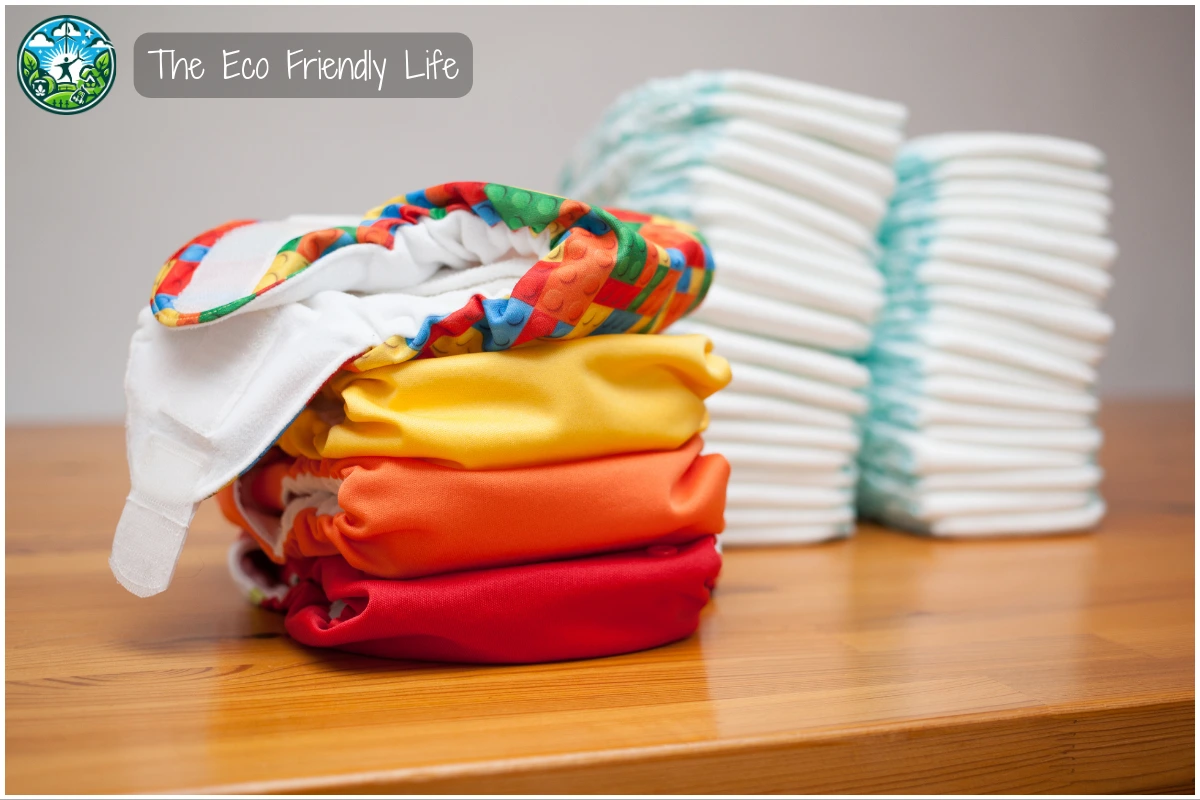
Support eco-friendly brands: Embracing reusables sends a powerful message: it declares a commitment to waste reduction. This commitment supports businesses that produce sustainable goods and fosters an environment where eco-friendly choices become the norm. Making the switch is a definitive step towards a greener lifestyle.
Choosing Sustainability First: From Apparel to Household Goods
Sustainable brands matter: When shopping for new products—be it clothes, electronics, or even coffee—the importance of choosing brands that prioritize sustainability should be at the forefront of your decision-making. It’s not just about what these products can do for you, but what they signify for the health of our planet and its inhabitants. Labels like Fair Trade, Rainforest Alliance, and Certified Organic guide you to ensure the items you purchase align with sustainable practices.
The power of your purchase choices: By supporting brands with a reputation for ecological responsibility, you leverage your purchasing power to influence the marketplace. It sends a clear signal to companies that consumers value sustainability, prompting more brands to adopt eco-friendly production methods. For example, BUFF® is a brand committed to using 100% clean energy and eco-friendly materials in their products. An added benefit of choosing sustainable goods is often superior craftsmanship and durability compared to their non-sustainable counterparts.
Go recycled goods: Opting for products with a high percentage of recycled content, like BUFF®’s fleece gaiter made from 95% recycled materials, repurposes what would otherwise be waste. Similarly, garments made from natural fabrics such as wool, cotton, and linen not only support sustainability but provide the quality and longevity you need.
Look for certifications: When shopping, look for brand certifications as they indicate a brand’s ongoing commitment to societal and environmental excellence. BUFF®, for instance, is B Corp certified, showcasing their dedication to continuous improvement in sustainability. This assures you that your purchase supports a broader mission towards a healthier planet.
Every time you pick a product off the shelf, you’re making a choice. You can either contribute to the growing problem or be part of a collective solution steering towards a greener future. This knowledge shapes how you shop and the brands you choose to align with your values, setting the stage for a mindful approach to consumption.
Mindfulness in Consumption: A Strategy for Environmental Preservation
Every purchase holds power. When you make thoughtful choices about what you buy, you’re not just filling a need; you’re casting a vote for the kind of world you want to live in. By avoiding impulse buys and sticking to a carefully considered shopping list, you reduce waste—saying no to items that might end up in a landfill.
Extend the lifecycle of products: Opting for secondhand treasures extends the lifecycle of items and reduces the resources needed for new products. Shopping secondhand isn’t just a thrifty move; it’s a statement against the relentless drive for the new, promoting a culture of ‘reuse’ that our planet desperately needs.
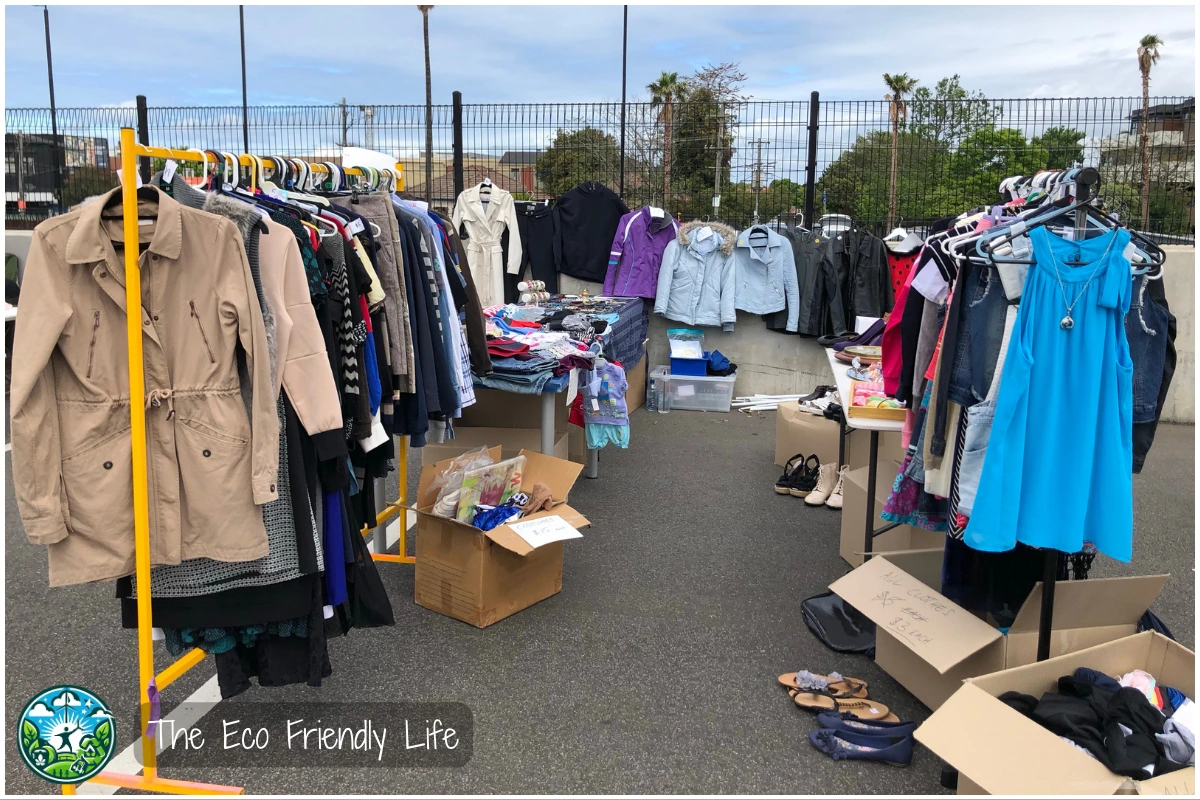
Support small business: Supporting small local businesses and sustainable brands isn’t only about short-term gratification; it’s a long-term investment in local economies and global ecological health. Companies like BUFF®, with their commitment to sustainable materials, energy, and fair labor practices, demonstrate that business success can align with environmental stewardship.
Go for the longest lifespan: When you buy high-quality, durable goods, you’re thinking beyond the initial purchase. You’re considering the entire lifecycle of the product and choosing items that won’t need to be replaced often. This mindset conserves materials and embodies the true spirit of sustainability—to use only what you need, responsibly and respectfully.
Being mindful means continually educating yourself about sustainability. It’s about checking for certifications and scrutinizing labels—understanding that terms like ‘organic,’ ‘fair-trade,’ and ‘energy-efficient’ are more than buzzwords; they’re signposts guiding you toward better choices.
Conclusion
In wrapping up our exploration of sustainable shopping habits, it’s evident that the choices we make can significantly impact the health of our planet. By embracing local and seasonal produce, we’re not only enjoying fresher and tastier food but also reducing carbon emissions and supporting earth-friendly farming practices.
Bulk buying is another powerful strategy to minimize waste and save money. Reducing packaging waste and carbon emissions linked to production and transportation, bulk shopping aligns economic benefits with environmental conservation. Using reusable containers can further amplify these advantages.
Choosing sustainable brands and products with certifications like Fair Trade or B Corp signifies a commitment to a greener future. Each purchase is a vote for the world we want to live in, fostering a mindful approach to consumption.
Thank you for joining me on this journey, and I encourage you to start implementing these sustainable shopping tips today for a healthier planet. Until next time continue living sustainably and inspire others to do the same.


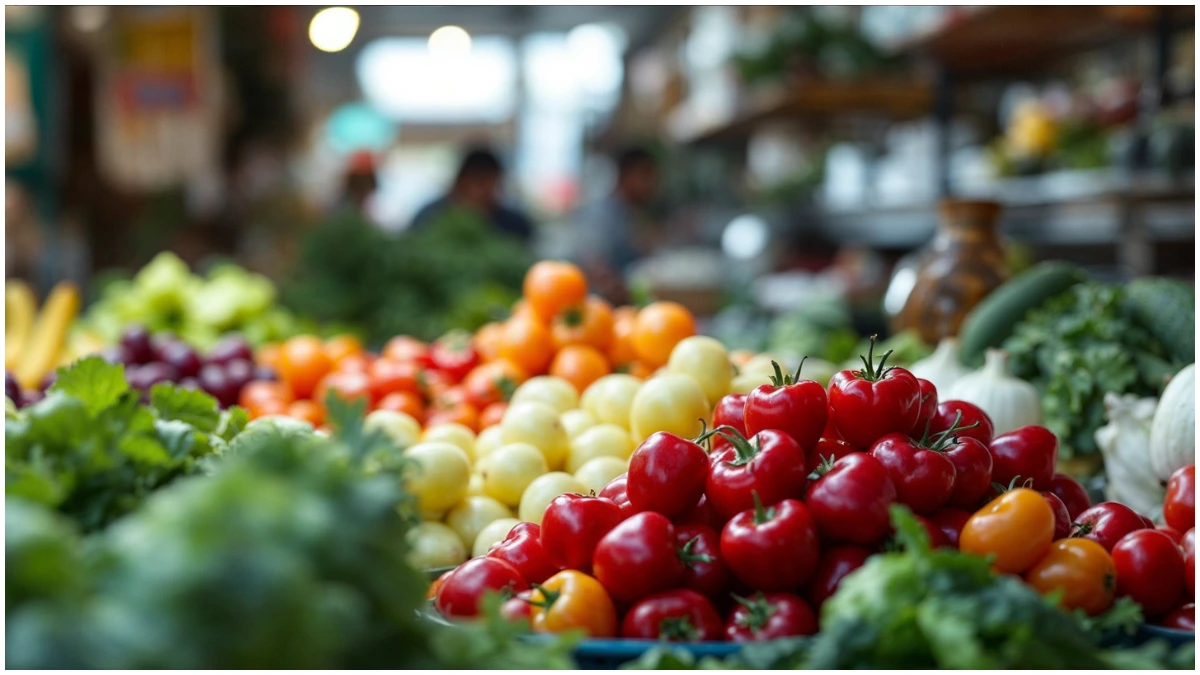
As a shopper trying to eat healthier, this article was helpful. Since starting my minimalist journey, many people have recommended farming to me, but starting has been difficult. Do you have any tips for at-home farmers? It’s refreshing to see someone who cares for the environment, while still providing money-saving tips.
Hi Don,
Thank you for your kind words! It’s great to hear that you found the article helpful and that you’re on a minimalist journey. Starting at-home farming can definitely be a bit challenging, but it’s a rewarding way to ensure you have fresh, healthy food while contributing positively to the environment. One tip is to start small with herbs and easy-to-grow vegetables like tomatoes or lettuce. These plants are relatively low-maintenance and can thrive in containers, making them perfect for beginners. Additionally, consider using compost from kitchen scraps to enrich your soil, which can save you money and reduce waste.
It’s wonderful that you’re interested in both health and sustainability. At-home farming is a fantastic way to combine these goals. Not only does it provide you with nutritious food, but it also helps reduce your carbon footprint by cutting down on the need for store-bought produce. Plus, the money-saving tips shared in the article, like buying in bulk and using reusable containers, align perfectly with the sustainable lifestyle you’re embracing. Keep experimenting to find what works best for your space and needs. Happy farming!